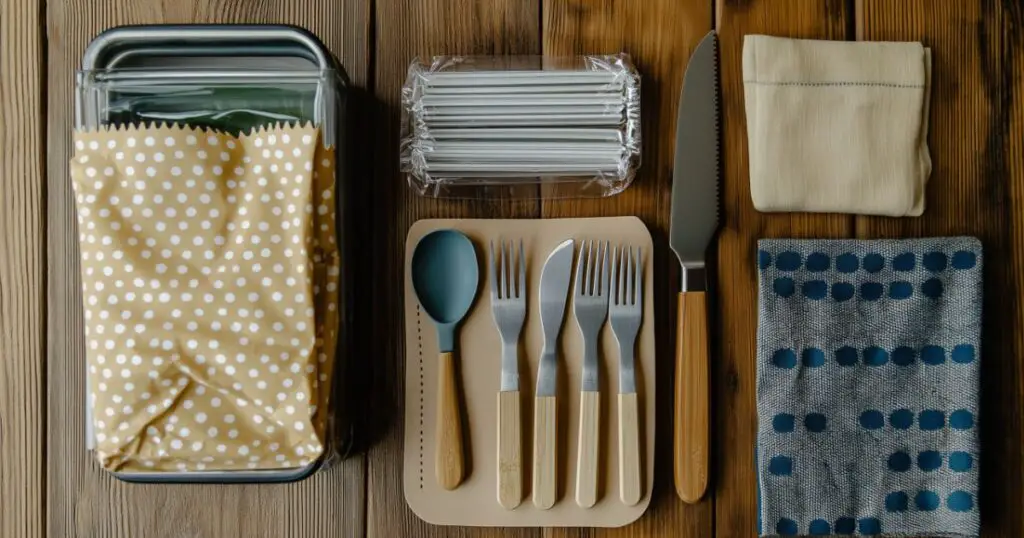Disposable and Eco-Friendly Field Trip Lunch Solutions
Table of Contents
Introduction
Field trips are a childhood favorite—adventure, learning, and memories rolled into one exciting day. But behind every fun outing is a practical challenge for parents: how to pack a convenient, kid-friendly lunch that doesn’t generate a mountain of waste. According to the Environmental Protection Agency (EPA), the average student produces over 67 pounds of lunch packaging waste each school year. Multiply that by a class field trip, and the environmental impact adds up fast.
For modern families focused on sustainability, there’s a better way. Today’s eco-friendly lunch solutions strike a balance between convenience and consciousness. From compostable packaging and reusable containers to zero-waste snack swaps, it’s easier than ever to create disposable lunches that are light on the planet and heavy on nutrition.
In this post, we’ll explore eco-friendly field trip lunch ideas that are portable, kid-approved, and easy to clean up—without sacrificing sustainability. Whether you’re packing for preschoolers or teens, you’ll find practical tips, product swaps, and real-life examples to help you prepare waste-free lunches with ease.
Outline: Disposable and Eco-Friendly Field Trip Lunch Solutions
1. Why Eco-Friendly Field Trip Lunches Matter
- Reduce single-use plastics and landfill waste.
- Teach kids sustainable habits from a young age.
- Many schools and parks now have “pack-in, pack-out” rules.
- Less clean-up for teachers and chaperones after meals.
Table: Traditional vs. Eco-Friendly Lunch Components
| Item | Traditional Option | Eco-Friendly Alternative |
| Sandwich Wrap | Plastic wrap | Beeswax wrap or compostable paper |
| Drink Container | Juice box (with straw) | Reusable bottle or pouch |
| Snack Bag | Ziplock | Reusable silicone bag or paper sack |
| Utensils | Plastic fork/spoon | Compostable bamboo or reusable cutlery |
2. Eco-Friendly Lunch Packaging Options
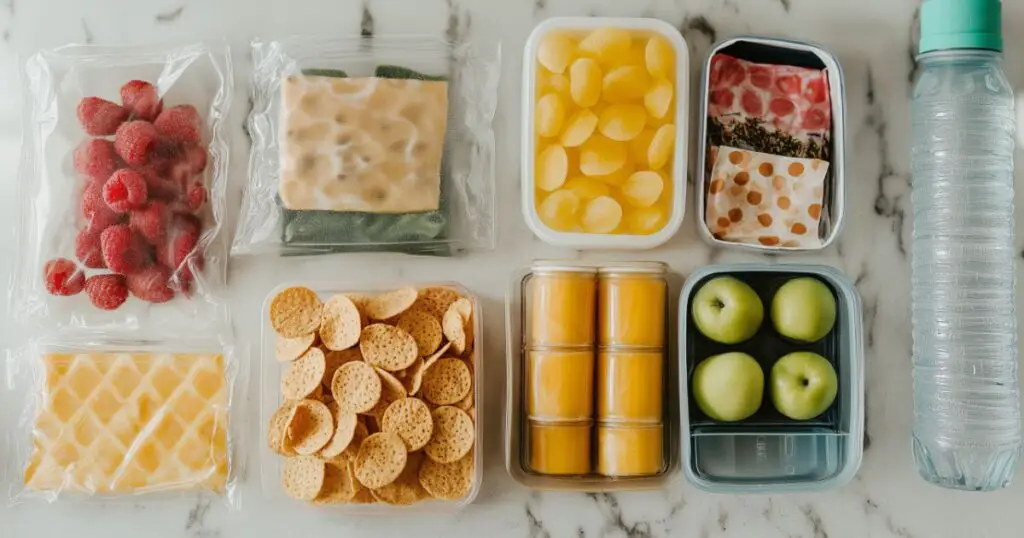
Compostable & Biodegradable Packaging
- Compostable paper bags instead of plastic lunch sacks.
- Sugarcane or bamboo fiber containers that break down naturally.
- PLA-lined compostable sandwich wrappers (non-toxic and heat-safe).
Reusable Packaging (When Disposables Aren’t Required)
- Stainless steel bento boxes or small leak-proof containers.
- Reusable snack pouches made from silicone or cloth.
- Cloth napkins as reusable food wraps or liners.
Table: Eco Packaging at a Glance
| Packaging Type | Best For | Compostable? |
| Paper Lunch Sacks | One-time use + recyclability | Yes |
| Silicone Pouches | Repeat use for snacks or fruits | No |
| Bamboo Bento Trays | Non-refrigerated foods for older kids | Yes (partial) |
3. Waste-Free Lunch Ideas That Travel Well
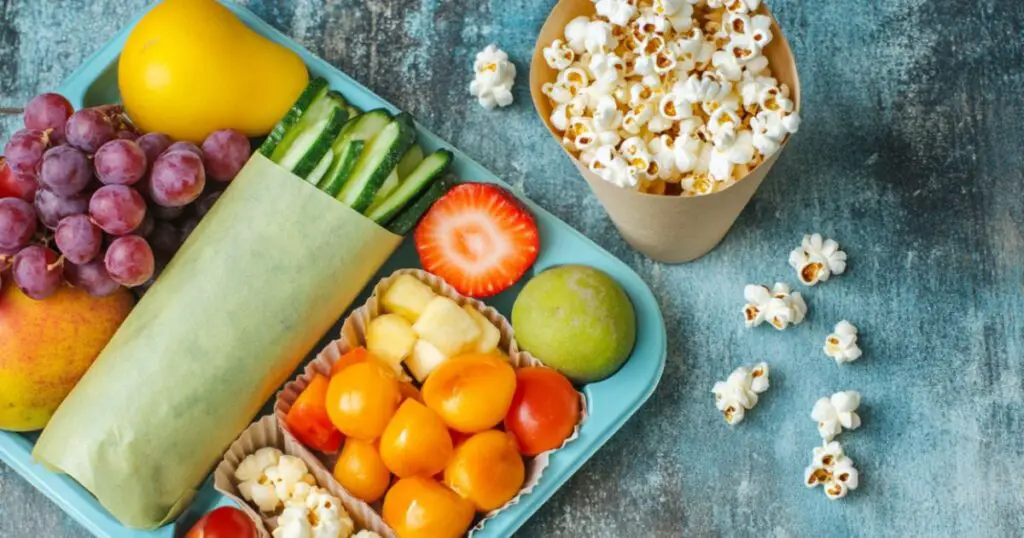
Simple and Sustainable Main Dishes
- Mini veggie wraps in compostable paper
- Pasta salad in a compostable fiber bowl
- Sunbutter and banana pinwheels
Kid-Friendly Zero-Waste Sides
- Fresh fruit slices packed in paper muffin liners
- Carrot or cucumber sticks in silicone cups
- Homemade trail mix in compostable parchment bags
Table: Zero-Waste Field Trip Lunch Examples
| Main Dish | Side Options | Packaging Tip |
| Wrap in beeswax wrap | Fruit in compostable liner | Use twine to secure wrap neatly |
| Pasta in fiber container | Veggies + hummus in mini pouch | Label contents with pencil on top |
| Mini sandwich bites | Popcorn in paper cone | Pre-portion for easy access |
4. Field Trip Lunch Packing Tips for Parents
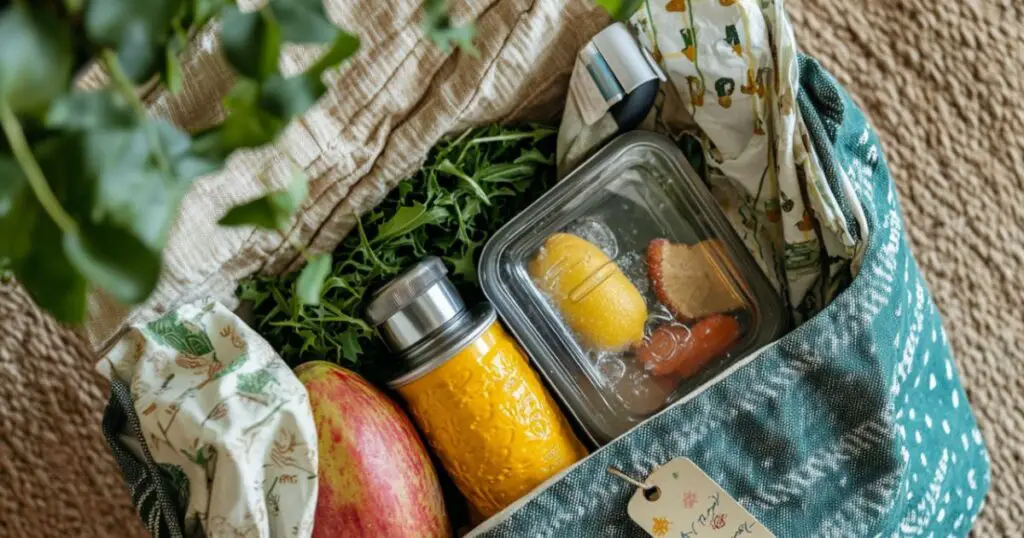
Quick Tips:
- Freeze a stainless steel water bottle the night before to keep lunches cool.
- Add compostable napkins and wipes for easy clean-up.
- Label reusable items with your child’s name in case of loss.
Packing Strategy:
- Use a small, lightweight lunch tote made from recycled materials.
- Separate wet and dry foods to preserve texture.
- Use divider cups or silicone molds inside containers to avoid wasteful bags.
Table: Smart Packing Checklist
| Task | Recommended Tool |
| Keep food cool | Ice pack or frozen drink pouch |
| Prevent food mixing | Silicone muffin cups |
| Secure packaging | Twine, cloth wrap, or bag clips |
5. Healthy, Low-Waste Snack Swaps for Kids
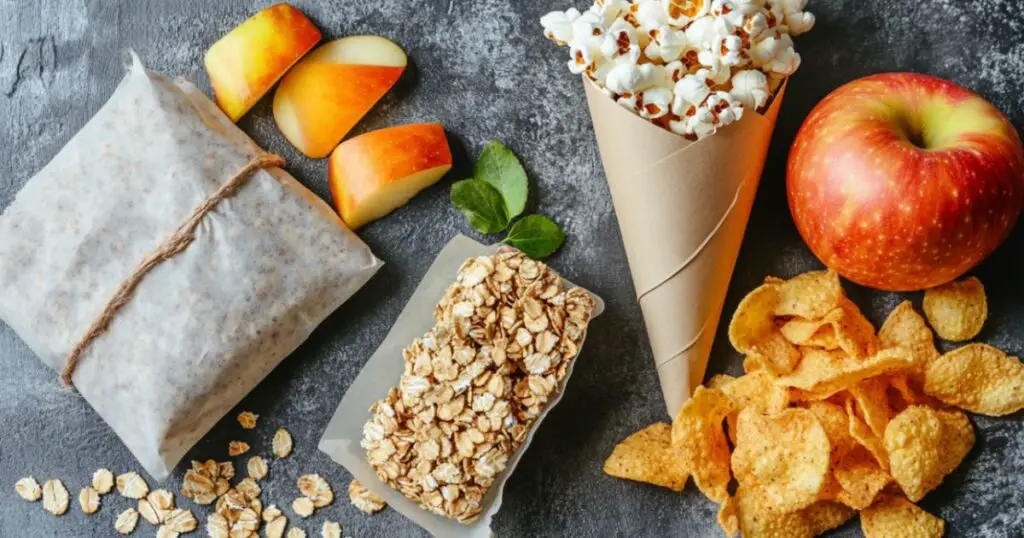
- Swap single-serve applesauce for whole apples or sliced fruit in a liner.
- Replace foil-wrapped granola bars with homemade oat bites in beeswax wrap.
- Skip plastic chip bags for air-popped popcorn in a paper cone.
Table: Low-Waste Snack Alternatives
| Traditional Snack | Eco-Friendly Swap |
| Granola Bar (packaged) | Homemade energy bites in cloth wrap |
| Yogurt Cup | DIY yogurt + fruit in a reusable jar |
| Crackers in plastic bag | Bulk crackers in paper snack sack |
6. Teaching Kids Sustainable Lunch Habits
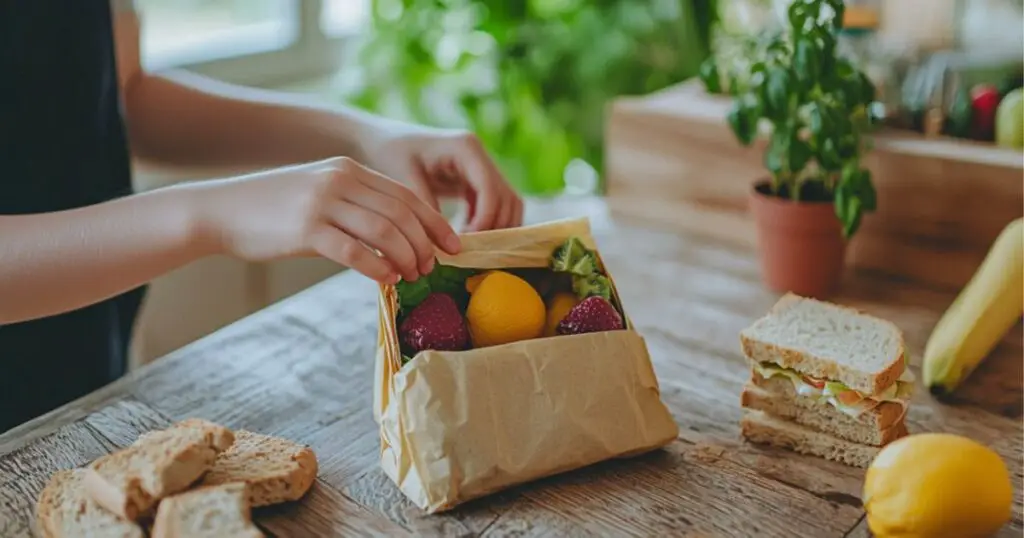
- Make packing part of the pre-trip routine to teach ownership.
- Let kids help portion snacks and fold their own wraps or napkins.
- Share the “why” behind choosing sustainable items—make it a teachable moment.
- Encourage a “leave no trace” mindset during school trips.
Table: Kid-Friendly Sustainability Tips
| Concept | How to Teach It |
| Reduce food waste | Pack only what they’ll eat |
| Reuse materials | Decorate reusable containers together |
| Compost knowledge | Discuss what goes in a green bin |
Detailed Content Expansion
2. Eco-Friendly Lunch Packaging Options
Choosing the right packaging is essential for balancing convenience with sustainability. For one-time use, look for compostable paper bags, PLA-lined wrappers, and sugarcane fiber trays—these materials decompose naturally and don’t leave harmful microplastics behind. Compostable sandwich wraps made from natural fibers are perfect for wrapping items like burritos, roll-ups, or sliced fruit.
If your school allows or encourages reusable items, opt for stainless steel lunch boxes, silicone snack pouches, or leak-proof mini jars for sauces or dips. Cloth napkins can double as wraps for muffins or fruit, and they’re easy to wash and reuse.
It’s also important to label everything. For example, if your child is using a reusable fork, mark it with their initials or a sticker to prevent mix-ups during group lunch breaks. This small habit helps reduce the number of lost items and encourages responsibility.
Table: Eco Packaging at a Glance
| Packaging Type | Best For | Compostable? |
| Paper Lunch Sacks | One-time use + recyclability | Yes |
| Silicone Pouches | Repeat use for snacks or fruits | No |
| Bamboo Bento Trays | Non-refrigerated foods for older kids | Yes (partial) |
3. Waste-Free Lunch Ideas That Travel Well
Not all foods travel well, especially without refrigeration or plastic containers. That’s why waste-free lunches must be built with both portability and perishability in mind. Focus on room-temperature-friendly options like pinwheels, pasta salads, or grain bowls. These can be prepped the night before and packed in biodegradable trays or compostable cups.
For snacks and sides, keep it simple with whole fruits like bananas, or chopped produce in paper or silicone containers. Avoid juicy fruits that might leak unless you have a leak-proof pouch or jar.
Try building meals with the “bento” mindset—divided, portioned sections with variety and color. This approach is not only fun but also encourages balanced eating and reduces the temptation to include overly processed items.
Table: Zero-Waste Field Trip Lunch Examples
| Main Dish | Side Options | Packaging Tip |
| Wrap in beeswax wrap | Fruit in compostable liner | Use twine to secure wrap neatly |
| Pasta in fiber container | Veggies + hummus in mini pouch | Label contents with pencil on top |
| Mini sandwich bites | Popcorn in paper cone | Pre-portion for easy access |
Conclusion
Packing an eco-friendly field trip lunch doesn’t have to be time-consuming or complicated. With compostable packaging, smart planning, and waste-free meal ideas, you can reduce your family’s environmental impact while keeping kids full and focused. As more schools promote sustainability, embracing reusable and biodegradable options helps build habits that benefit both your child and the planet. A thoughtful lunch today lays the foundation for greener choices tomorrow.


